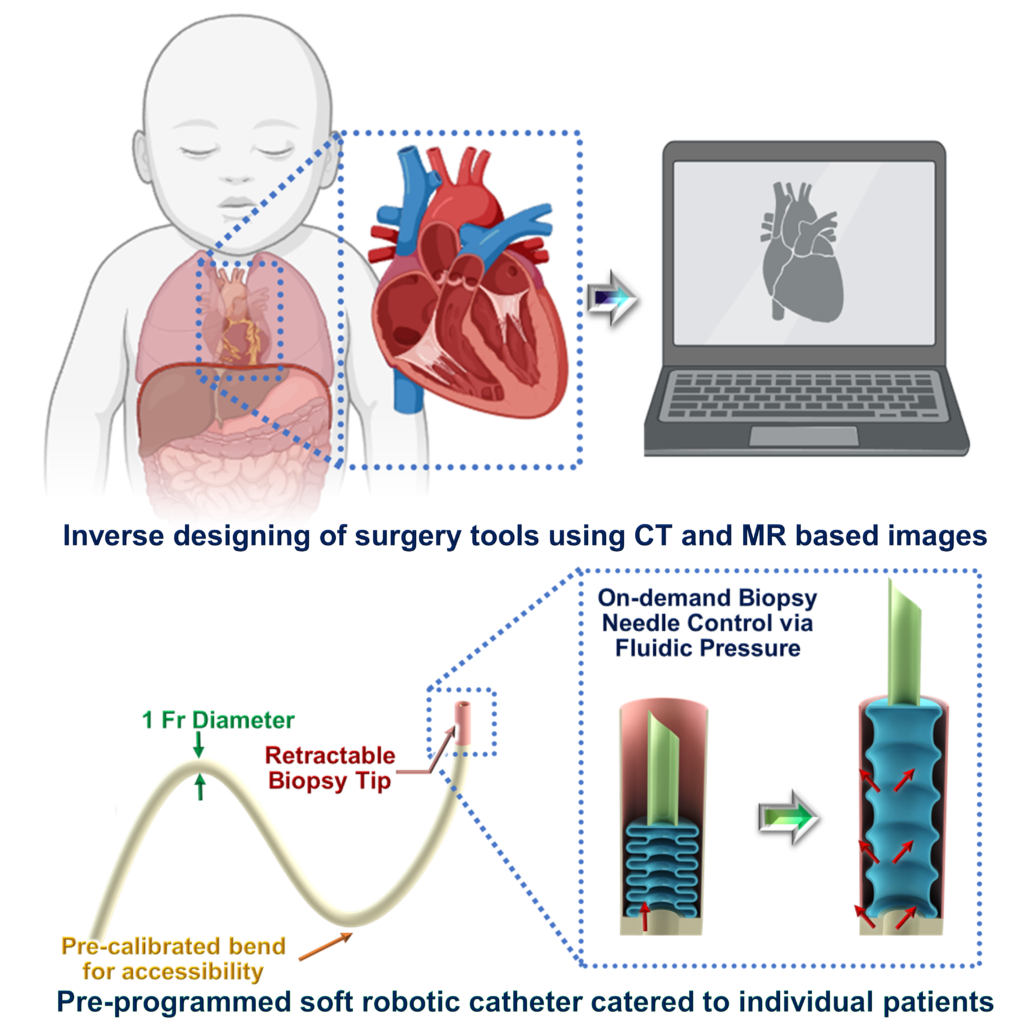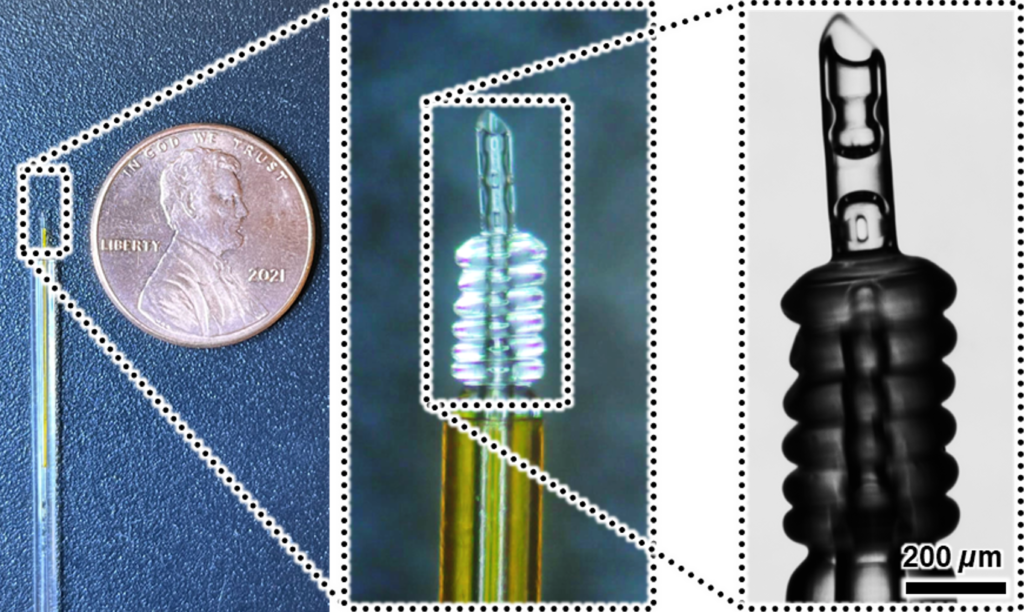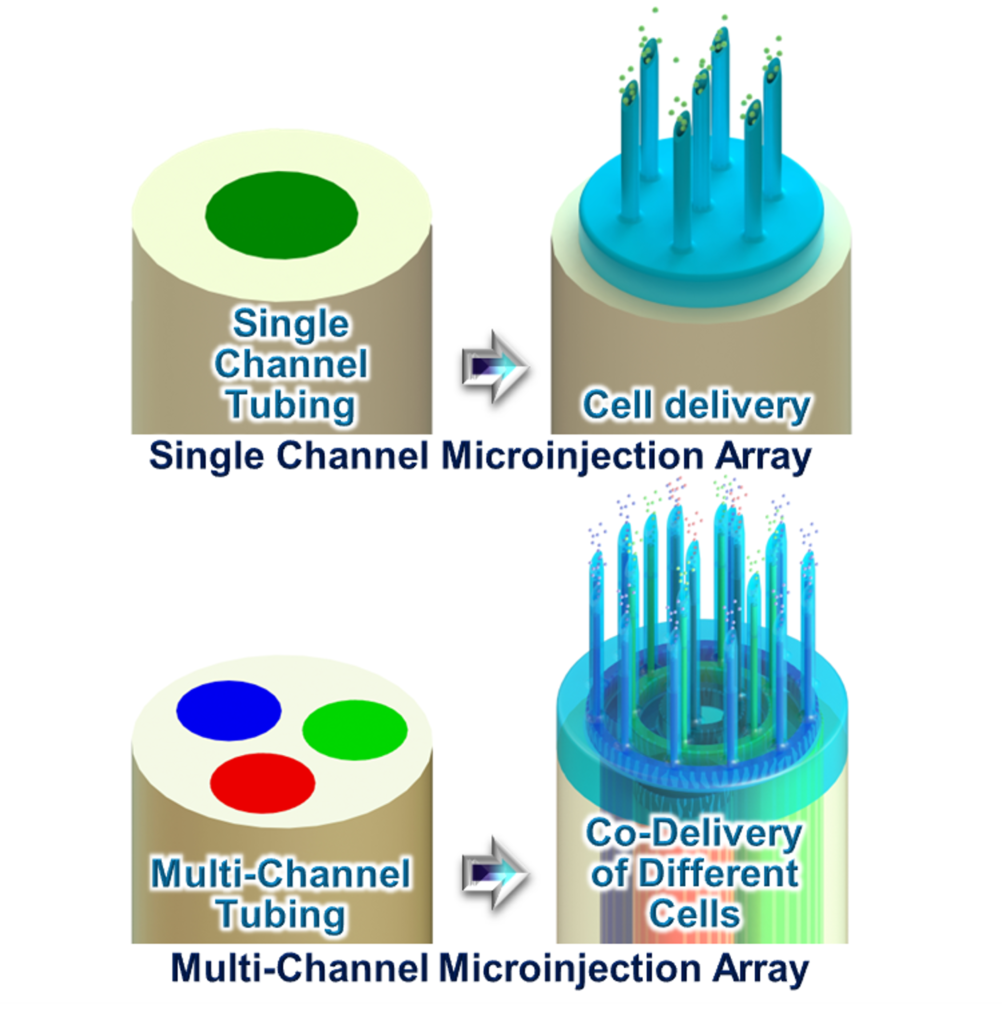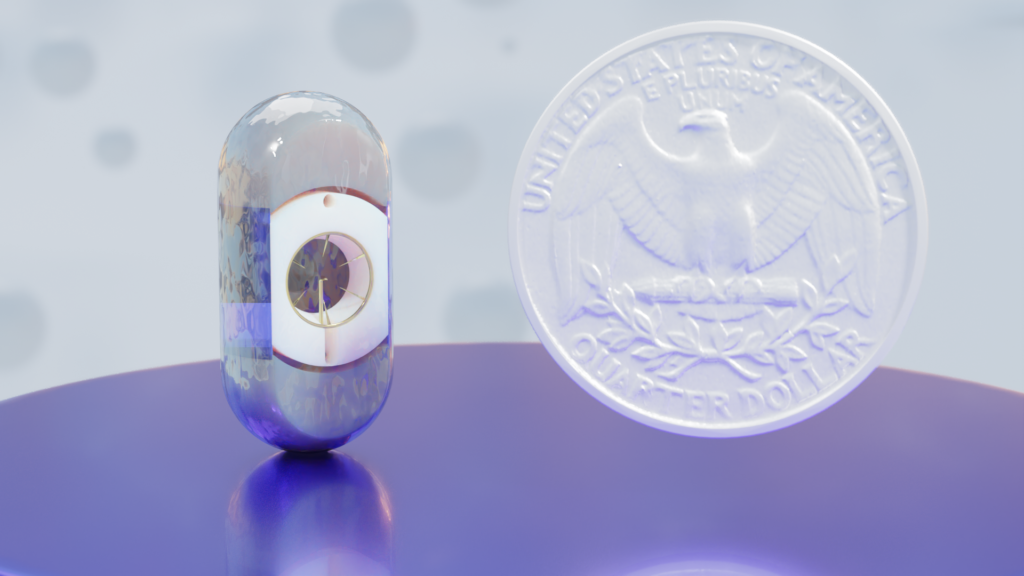Research Projects

INVERSE-DESIGN-ENABLED PERSONALIZED 3D-MICROPRINTED SURGERY TOOLS
Using inverse design strategies, we will harness the geometric freedom AM offers to create personalized surgery tools curated particularly for critical patients (e.g., neonatal). Currently, due to its invasive nature and potential for adverse effects, the utilization of cardiac biopsy in diagnosing pediatric heart failure remains underutilized. Moreover, conventional biopsy tools prove inefficient in accessing distal locations of interest (e.g., left ventricular) due to the technical challenges posed by the tortuosity and size of these vessels compared to the child’s size. We will investigate the geometric versatility and resolution afforded by AM methods to create novel surgery tools catered to individualized critical pediatric patients. We will realize surgical elements that are safer and more efficient for pediatrics and neonatal applications and allow new interventions that are currently not possible due to technical challenges.


Microinjection Tools for Microenvironment Manipulation In Vivo
AM technologies can be utilized to create delivery mechanisms that can actively modulate the microenvironment of a targeted site. Recently, researchers have elucidated the potential of 3D printing to bioengineer scaffolds with precise micro- and nano-architectures that mimic natural patterns to study stem cell growth in vitro. However, with current methods, controlling the microenvironment’s properties in vivo during and after transplantation is challenging, if not impossible. We will create 3D-printing-enabled novel multi-channel microinjection arrays with biomimetic physical and topographical geometry to simultaneously deliver multiple biological substances e.g., stem cells, extracellular matrix, and growth factors in vivo. By controlling the spatial distribution and release kinetics, a gradient or localized cues can be created that directly enhance stem cell differentiation, proliferation, and migration. cell survival, function, and integration into host tissue.

Personalized Pharmaceutical Therapies
Macro-scale AM methods have indisputably transformed the field of personalized implants and the dental industry; however, the potential of harnessing micro and nanoscale AM techniques is still predominantly unexplored, especially in customized treatment. Understanding and observing the tissue microenvironment can be pivotal for designing and charting personalized therapeutics. We will focus on harnessing advanced micro and nano AM technologies to offer intelligent pharmaceuticals, designed for individualized needs that can navigate biological barriers, modify release rates, and enhance drug bioavailability. Informed by an intimate understanding of the tissue microenvironment, we will create pharmaceuticals that can sense the local milieu’s cues and release drugs in response to specific triggers, such as inflammatory markers or hypoxia, ensuring real-time, on-demand therapeutic interventions.